
When Popocatepetl, a volcano overlooking the southern Valley of Mexico, erupted in the first-century a.d., it blanketed nearby cities and farmlands with thick layers of ash. The cataclysm forced people to abandon their homes in search of arable land. Many of those fleeing the consequences of the eruption eventually made their way to the Teotihuacan Valley, 70 miles north of the volcano, where there were only a few scattered farming villages. Here, over roughly a century following the eruption, these refugees and their descendants laid out an urban grid, dug an extensive irrigation network, and built the center of what would become, for a time, the largest city in Mesoamerica, known today as Teotihuacan. The most politically and economically powerful center in the ancient Americas until the Aztecs forged their empire hundreds of years later, Teotihuacan owed its existence to the disaster of Popocatepetl’s eruption. “The city itself didn’t exist before the movement of fleeing people,” says Linda Manzanilla, an archaeologist at the National Autonomous University of Mexico who has been excavating in Teotihuacan for four decades. She and her colleagues estimate that at its peak around a.d. 400, some 100,000 people called the city home.
この記事は Archaeology の November/December 2019 版に掲載されています。
7 日間の Magzter GOLD 無料トライアルを開始して、何千もの厳選されたプレミアム ストーリー、9,000 以上の雑誌や新聞にアクセスしてください。
すでに購読者です ? サインイン
この記事は Archaeology の November/December 2019 版に掲載されています。
7 日間の Magzter GOLD 無料トライアルを開始して、何千もの厳選されたプレミアム ストーリー、9,000 以上の雑誌や新聞にアクセスしてください。
すでに購読者です? サインイン
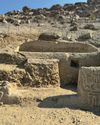
ORIGINS OF PERUVIAN RELIGION
While investigating looters' holes at the site of La Otra Banda in northern Peru's Zaña Valley, archaeologist Luis A. Muro Ynoñán of the Field Museum and the Pontifical Catholic University of Peru spotted carved blocks around seven feet below the surface.
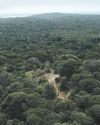
ISLAND OF FREEDOM
Many of the enslaved Africans sent to Brazil beginning in 1549 were from what is now Angola, where one of the most widely spoken languages was Kimbundu.
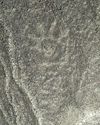
NAZCA GHOST GLYPHS
From the 1940s to the early 2000s, geoglyphs were discovered in the Nazca Desert of southern Peru depicting animals, humans, and other figures at the rate of 1.5 per year.
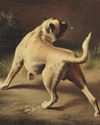
COLONIAL COMPANIONS
The ancestry of dogs in seventeenth-century Jamestown offers a window into social dynamics between Indigenous people and early colonists.
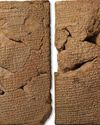
BAD MOON RISING
The British Museum houses around 130,000 clay tablets from ancient Mesopotamia written in cuneiform script between 3200 B.C. and the first century A.D.
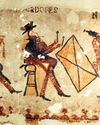
DANCING DAYS OF THE MAYA
In the mountains of Guatemala, murals depict elaborate performances combining Catholic and Indigenous traditions
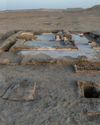
LOST GREEK TRAGEDIES REVIVED
How a scholar discovered passages from a great Athenian playwright on a discarded papyrus
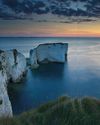
Medieval England's Coveted Cargo
Archaeologists dive on a ship laden with marble bound for the kingdom's grandest cathedrals
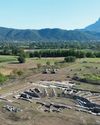
Unearthing a Forgotten Roman Town
A stretch of Italian farmland concealed one of the small cities that powered the empire
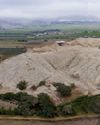
TOP 10 DISCOVERIES OF 2024
ARCHAEOLOGY magazine reveals the year's most exciting finds